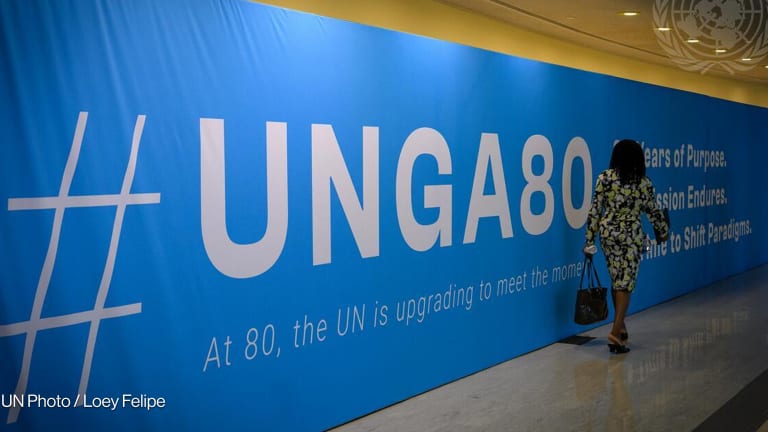Philanthropy can better support the localization agenda, experts say

The philanthropy sector could do much more to support the localization movement — or the shifting of power to the countries and communities where aid work is implemented, global development and philanthropy experts said Tuesday.
They spoke at an event on the sidelines of the United Nations General Assembly that was hosted by the Council on Foundations, the Conrad N. Hilton Foundation, and the Worldwide Initiatives for Grantmaker Support that took place at the Ford Foundation’s headquarters in New York City. The event explored the question of why the philanthropy sector is dragging its heels on funding organizations based in the global south.
Between 2016-2019, U.S.-based foundations directed roughly 13% of their global grant dollars to local organizations in the countries where they had headquarters, according to data from the Council on Foundations and Candid.
That figure is “sad” but not surprising, said Degan Ali, executive director of Kenya-based humanitarian aid nonprofit Adeso. Ali has championed the “decolonize aid” movement. Earlier this year, she told Devex that philanthropy could play a critical role in that movement by giving local organizations the funding and technical support necessary to become self-sustaining.
“Philanthropy is a critical part of the solution to decolonize aid, to decolonize the system because you have the flexibility that the bilaterals [organizations] don’t” to fund “political movements of change” or “issues around reparations,” she said at Tuesday’s event, which was moderated by Devex Editor-in-Chief Raj Kumar.
“You have the ability to really lean into risk and trust in a way that could be revolutionary, if you change your mindset and you change your systems,” Ali added.
Some in the audience also questioned whether external foundations were not themselves perpetuating inequity and colonial thinking by not turning to local organizations for advice on how best to operate in the global south.
“At some point, we have to keep things real and authentic,” and if there is a localization pledge from a foundation, it should be to “humble ourselves” and seek advice from emerging regional organizations that are having an impact, said one audience member.
The event featured speakers from the Ford Foundation, Hilton Foundation, and WINGS — most of whom were white and represented organizations based in the global north. The panel might have looked “better” and have been “more convincing and better rooted” if it had also included a more diverse group, said Peter Laugharn, president and CEO of the Hilton Foundation.
“And I think my role here is not so much to symbolize something. It’s to admit that there is work to do to get our own house in order,” he said.
Search for articles
Most Read
- 1
- 2
- 3
- 4
- 5








